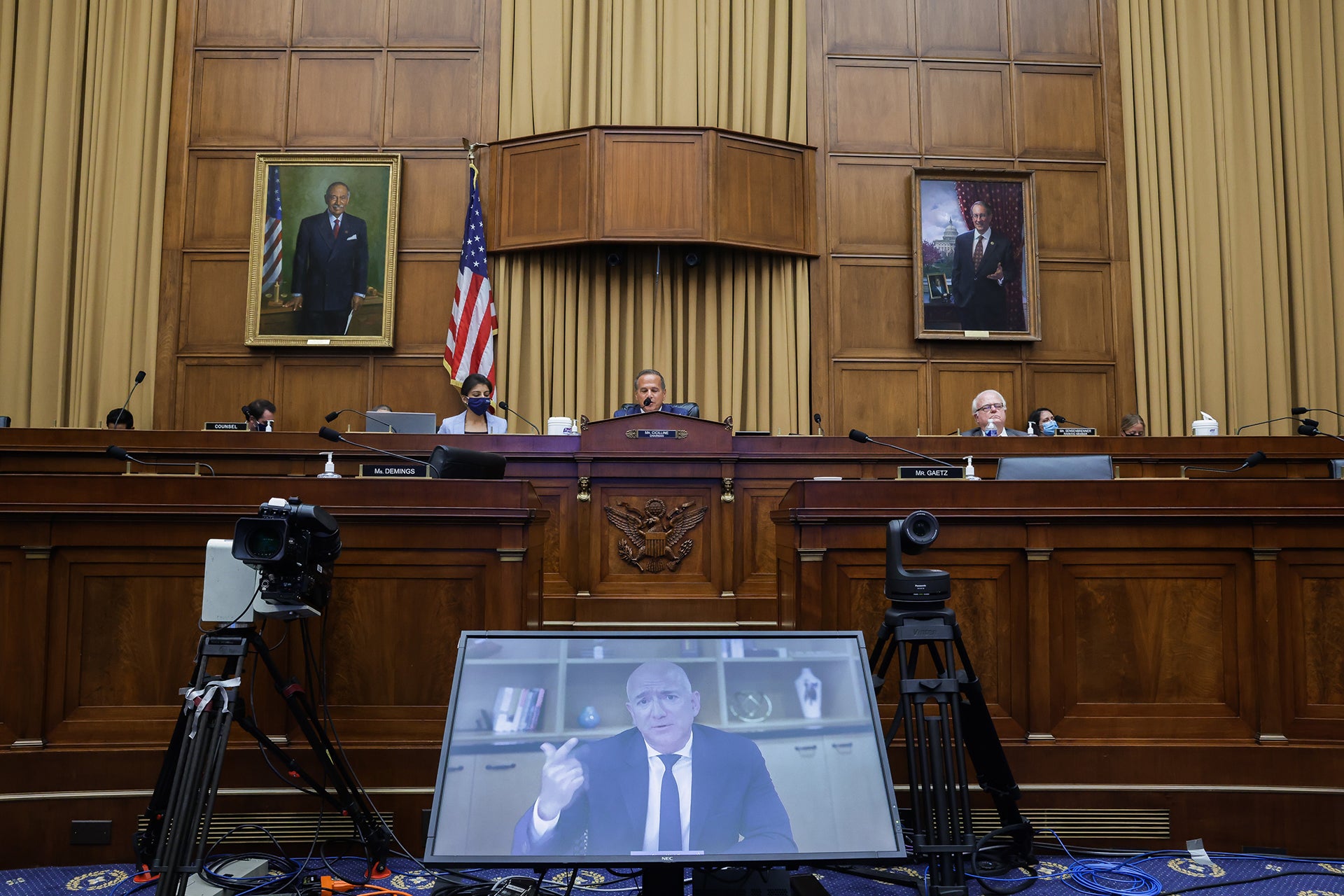
Amazon has long denied using its platform to copy popular merchants’ products and promote its own wares in the search results, but leaked documents say otherwise. The revelations are sure to influence the multiple probes launched by regulators around the world against the ecommerce giant.
Amazon teams in India actively copied popular products from merchants using the online shopping portal, going as far as planning to poach manufacturers to make the copies better, according to leaked documents seen by Reuters.

Access deeper industry intelligence
Experience unmatched clarity with a single platform that combines unique data, AI, and human expertise.
The Amazon files also suggest the online retail behemoth tweaked the platform’s algorithms to promote Amazon’s own wares.
Amazon has denied the allegations, telling the news agency: “As Reuters hasn’t shared the documents or their provenance with us, we are unable to confirm the veracity or otherwise of the information and claims as stated. We believe these claims are factually incorrect and unsubstantiated.”
The online shopping giant also denied tweaking its algorithms to ensure its own wares were displayed higher up in the search results.
“We display search results based on relevance to the customer’s search query, irrespective of whether such products have private brands offered by sellers or not,” Amazon said.

US Tariffs are shifting - will you react or anticipate?
Don’t let policy changes catch you off guard. Stay proactive with real-time data and expert analysis.
By GlobalDataThe bombshell leak comes as Amazon faces antitrust probes in India, the EU and the US. Experts believe that the leaked documents could influence those investigations.
While the European Commission declined to comment to Verdict on how the revelations will affect its own antitrust probe against Amazon, it is highly likely that all information in the public realm will be considered by the EU’s executive branch as well as by authorities in other countries.
“I would expect the European and US antitrust regulators would be very interested in these Indian developments if they are part of a more widespread global practice,” Andy Maxwell, partner and head of competition at law firm Freeths, tells Verdict. “Even if it is limited to India, they are likely to be of interest to the Competition Commission of India.”
Lawmakers around the world are increasingly trying to cut down Big Tech companies’ market dominance by introducing new legislation.
“Many [Big Tech firms] are accused of trampling on competitors to maintain their dominance,” analysts wrote in a recent thematic research report from GlobalData. “While regulators have attempted to take on Big Tech before, there is a growing consensus that new antitrust rules and approaches are needed to address the complexity of the digital economy.”
Did Amazon copy other products?
Amazon being accused of copying popular products is nothing new. What is new, however, is a treasure trove of internal documents seemingly confirming those claims.
Reuters says that the “thousands of pages of internal Amazon documents examined by Reuters – including emails, strategy papers and business plans” reveal that employees in India used the platform to copy popular products and rigged the search results so that the company’s version of a given item would appear higher up in the search results.
Those products allegedly include the popular John Miller shirt brand, with documents suggesting that Amazon decided to “follow measurements of” the brand on its own line of shirts once it noticed how well John Miller shirts were selling on the platform.
The documents also suggest that Amazon staff leveraged proprietary data on other brands to inform its own strategy. This included informing its strategy for the launch of Amazon’s Indian Solimo brand, which is selling some of its health and household products in the States and UK now.
A document from 2016 also suggests that Amazon employees working on its own private brand products had laid out plans to partner with merchants’ own manufacturers to ensure the copied products were of the same quality as the “reference product”.
Founder Jeff Bezos, who stepped down as CEO earlier this year to focus on winning the billionaire space race with Blue Origin, has repeatedly denied that Amazon used its own market dominance and platform to give it an unfair advantage over its competitors.
During a congressional antitrust hearing in 2020, Bezos said the online shopping goliath prohibits its employees from using the data on individual sellers to help its private-label business.







